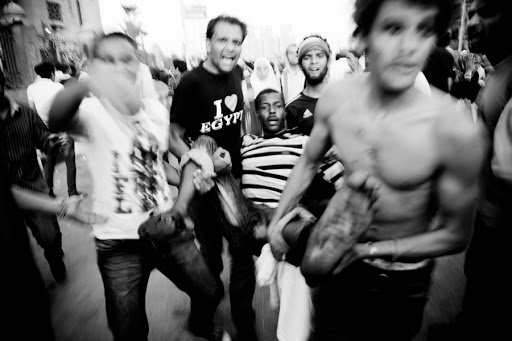There’s chaos in Egypt. On 3 July the army staged a military coup, overthrowing president Mohammed Morsi and taking the country into its own hands. A month on and the nation is split in two, as pro-Morsi protesters clash with the military and violence escalates at an alarming rate.
What went wrong?
President Morsi, head of the Islamist Muslim Brotherhood, has little been in power after marginally winning the vote in 2012. Before him, was president Hosni Mubarak, who was forced out of office in 2011 by nationwide protests, which led to a turbulent year and half of military rule.
Now history is repeating itself and is doing so without respite, after just one year of being in office, on 30 June protesters once again took to the streets, calling for the immediate removal of Morsi from power. The demonstrations were organised by the Tamarod movement.
Tamrod – literally meaning ‘revolt’ in Arabic – are a new protest movement who claim to have gathered 22 million signatures, demanding Morsi’s immediate resignation and the setting up of new presidential elections.
Such a wide-scaled protest led military to warn Morsi that he must meet the demands of the public within 48 hours or it would intervene.
However, the president claimed that he was rightfully and lawfully the leader and that removing him from power would leave the country in the hands of chaos, as well as violating the constitution.
Nevertheless on the 3 July Gen Abdul Fattah al-Sisi, leader of the armed forces, declared the suspension of the constitution. Taking over government, he instated Chief Justice Adly Mansour as temporary leader, who would oversee the country's transition into new presidential and parliamentary elections.
The coup was approved by many leading figures in Egypt, including the head of the Christian Coptic Church as well as the Gradn Sheikh of al-Azhar (Egypt’s supreme Islamic authority) and the leader of the opposition Mohamed EIBaradei, from the staunch Salafist Nour party.
Morsi was taken to an unknown location and has been detained ever since, along with other leading members of the Muslim Brotherhood party.
A nation divided
And so the nation has split in two, as Morsi supporters flood the streets in their thousands, demanding his reinstatement as president, while the army responds in full force, backed by armoured vehicles and taking control of major sites around Cairo.
Since the take-over the violence has escalated at a rapid rate. 70 people have been killed in the latest bloody protest on Saturday, while neither army nor pro-Morsi protesters back down.
Amnesty International have reported around 165 deaths since the demonstrations began on 30 June.
On Sunday, Egypt's new foreign minister made an urgent appeal for “restraint.” In a press statement, Secretary of State John Kerry stressed that: “Violence not only further sets back the process of reconciliation and democratization in Egypt, but it will negatively impact regional stability.”
He continued, “at this critical juncture, it is essential that the security forces and the interim government respect the right of peaceful protest, including the ongoing sit-in demonstrations.”
He then asserted that dialogue is a must in order to come back from the “brink” of chaos and that to enable such dialogue, “the United States reiterates our call for an end to politicized detentions and the release of political leaders consistent with the law.”
Despite the violence, thousands of pro-morsi protesters have continued to stake the streets out, demanding the ousted president’s return to power.
Meanwhile temporary leader Adly Mansour and his cabinet have given the armed forces the go-ahead to arrest civilians, as well as ordering the police end the demonstrations. “The cabinet has decided to take all measures necessary to confront these risks and put an end to them," stated one of the officials.
A go between?
The EU's foreign policy chief Baroness Catherine Ashton, met with Egypt's former president Mohammed Morsi on Tuesday. She was the first foreign minister to have been granted an interview.
She confirmed that the former president was alive and well, although she did not know where he was being detained. Morsi is supposedly undergoing an investigation for conspiracy to aiding Hamas (Palestinian Islamist group) murder police officers in Egypt’s revolution of 2011.
His collegues in the Muslim Brotherhood party have dismissed the charges as "laughable".
Ashton’s aim in meeting with the exiled president was to try and help mediate discussions between the two opposing parties, with the hopes of arriving at some kind of middle ground.
However this seems to be far from happening, as the army backed interim government has ordered the police to put an end to the protesting in Cairo, while thousands of protesters have now gathered in order to publicly defy the order.
Vice president of the Freedom and Justice Party (which is the Brotherhood's political party) Essam el-Erian stated:
"The free people in Egypt and the world must stand against this stupid cabinet mandate for the police to end the sit-in protests."
More violent clashes are definitely to be expected over the next few days of continued conflict between this divided nation.

